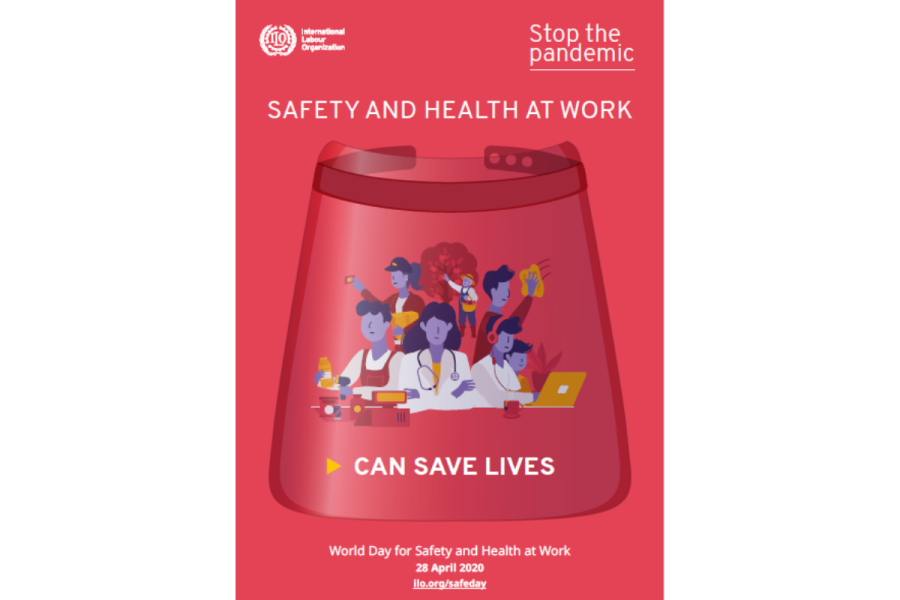World Day for Safety and Health at Work
28 April 2020
Protect workers both now and after lockdowns ease, says ILO. The International Labour Organization warns that without adequate safeguards for returning workers there could be a second wave of the virus.

GENEVA (ILO News) – As the pressure mounts on countries to ease their lockdown restrictions, the International Labour Organization (ILO) has urged Governments to take action to prevent and control COVID-19 in the workplace, with active involvement and dialogue with employers’ and workers’ organizations.
All employers need to carry out risk assessments and ensure their workplaces meet strict occupational safety and health criteria beforehand, to minimize the risk to workers of exposure to COVID-19, says the ILO.
Without such controls, countries face the very real risk of a resurgence of the virus. Putting in place the necessary measures will minimize the risk of a second wave of contagion contracted at the workplace.
“The safety and health of our entire workforce is paramount today. In the face of an infectious disease outbreak, how we protect our workers now clearly dictates how safe our communities are, and how resilient our businesses will be, as this pandemic evolves,” said the Director-General of the ILO, Guy Ryder.
“It is only by implementing occupational safety and health measures that we can protect the lives of workers, their families and the larger communities, ensure work continuity and economic survival,” Ryder added.
In particular, risk control measures should be specifically adapted to the needs of workers at the frontline of the pandemic. These include health workers, nurses, doctors and emergency workers, as well as those in food retail and cleaning services.
The ILO also highlighted the needs of the most vulnerable workers and businesses, in particular those in the informal economy, migrant and domestic workers. Measures to protect these workers should include - among others - education and training on safe and healthy work practices, free provision of PPE as needed, access to public health services and livelihood alternatives.
“The COVID-19 pandemic has highlighted the urgent need for strong national programmes to protect the health and safety of health workers, medical professionals, emergency responders, and the many other workers risking their lives on our behalf,” said Dr Tedros Adhanom Ghebreyesus, WHO Director-General. “On World Day for Safety and Health at Work, I call on all countries to assure well-defined, decent and safe working conditions for all health workers."
To ensure a safe return to work and to avoid further work disruptions, the ILO recommends:
- Mapping hazards and assessing risks of contagion in relation to all work operations, and continuing to assess them following a return to work.
- Adopting risk control measures adapted to each sector and the specifics of each workplace and workforce. These may include:
- Reducing physical interactions between workers, contractors, customers and visitors and respecting physical distancing when any interactions occur.
- Improving ventilation in the work place.
- Regularly cleaning surfaces, ensuring workplaces are clean and hygienic, and providing adequate facilities for handwashing and sanitization.
- Providing Personal Protective Equipment (PPEs) to workers where necessary and at no cost .
- Providing arrangements for isolating suspected cases and tracing every contact.
- Providing mental health support for staff.
- Providing training, education and informational material about health and safety at work, including proper hygiene practices and the use of any workplace controls (including PPE).


